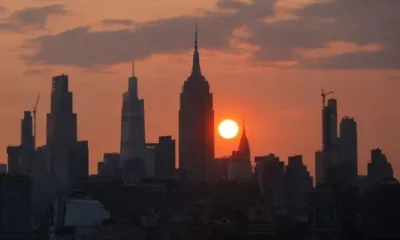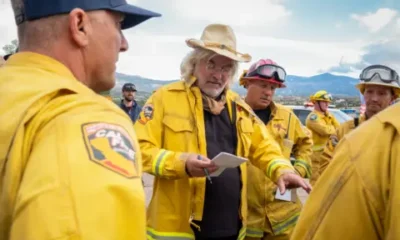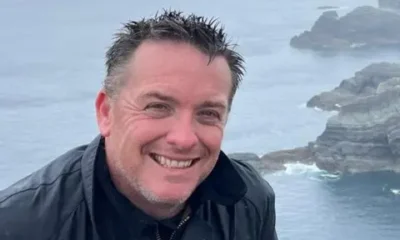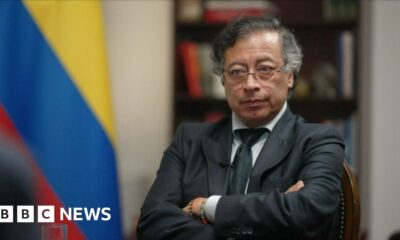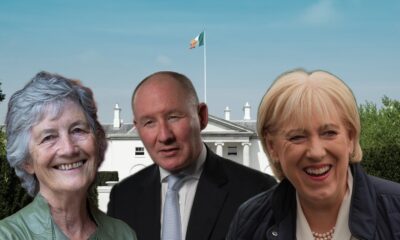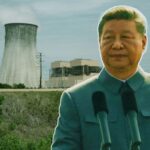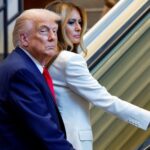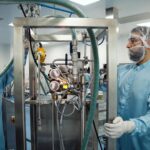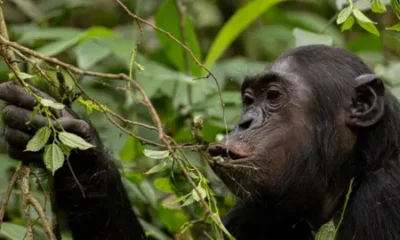Breaking News
Vaccine giant opens new UK factory with apparent jab at US
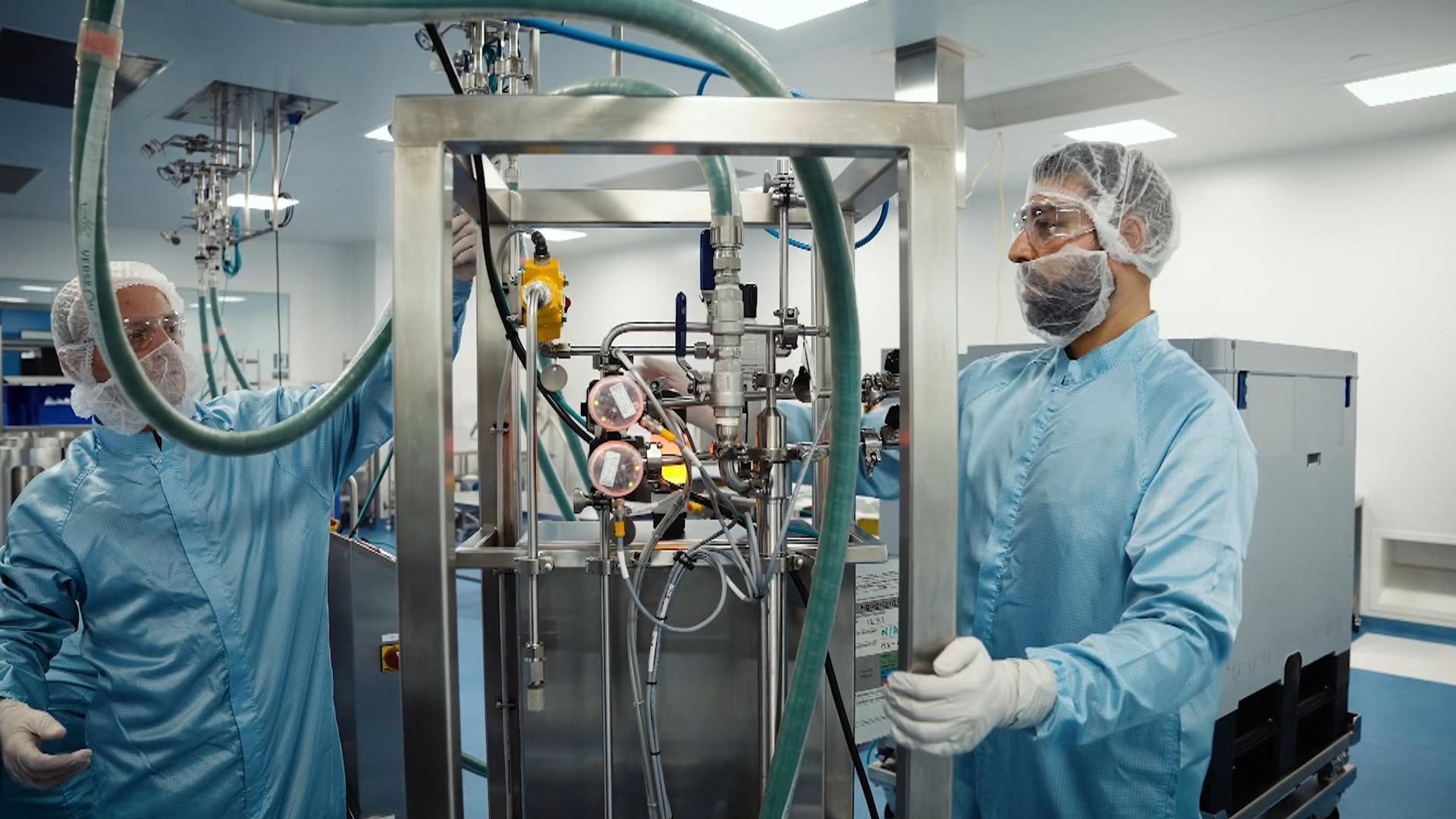
Read more on post .
A US vaccine firm has opened the first mRNA manufacturing plant in the UK, against a backdrop of increasing anti-jab rhetoric back home.
The new facility outside Oxford is part of a £1bn investment in the UK by Moderna, which specialises in mRNA.
The novel vaccine technology delivered some of the most effective and fastest-to-develop jabs during the COVID pandemic.
Several pharma companies, including Germany’s leading mRNA pioneer BioNTech, are now racing to develop new therapies.
Moderna says the plant will produce up to 100 million doses of its existing vaccine products each year. It has also been designed to scale-up production to 250 million doses a year in the event of a new disease outbreak.
“God-forbid, if there is another pandemic, we can switch the facility any day,” said Moderna CEO Stephane Bancel.
The UK investment deal was agreed by the previous government, but the plant’s opening is welcome relief for the current one.
In recent weeks, four major pharmaceutical companies have halted planned investments in the UK following disputes over drug pricing and profitability in the UK.
‘A great statement’
It also promises to restore domestic vaccine manufacturing capability in the UK, the lack of which was exposed when dangerous supply interruptions threatened the early COVID response.
“It’s a really fast way of getting new vaccines discovered,” said Lord Patrick Vallance, former chief scientist and now science minister.
“It’s also a great statement of confidence in the UK that [Moderna has] chosen to base themselves here.”
Moderna: UK ‘still believes’ in vaccines
The mRNA molecule is the same used by our cells to order the production of new proteins, and allows vaccines to be produced using just the genetic code of a virus or other biological target.
Moderna’s investment decision pre-dated Donald Trump’s return to the White House, but the Moderna CEO said its operation in the UK – a country that “still believes in vaccination” – may pay dividends if anti-vaccine rhetoric translates into a lack of demand for its products in the US.
“If there is less appetite by governments around the world, including in the US, to use vaccines, we might invest less in vaccines,” said Mr Bancel.
“We have to invest where there’s a demand for our products.”
Read more: All health claims made by Trump – and what experts say
The UK presents other attractions for the company which has suffered substantial losses as demand for its COVID vaccine has fallen.
It’s betting that leading UK universities and a large patient population will make for successful clinical trials.
The company has ongoing NHS trials of new jabs against seasonal flu, a combination COVID and flu vaccine, cancer vaccines and mRNA therapies for two inherited childhood diseases.
Moderna says it is now the largest private commercial sponsor of clinical trials in the UK.
Breaking News
Candidates begin canvassing in Presidential Election
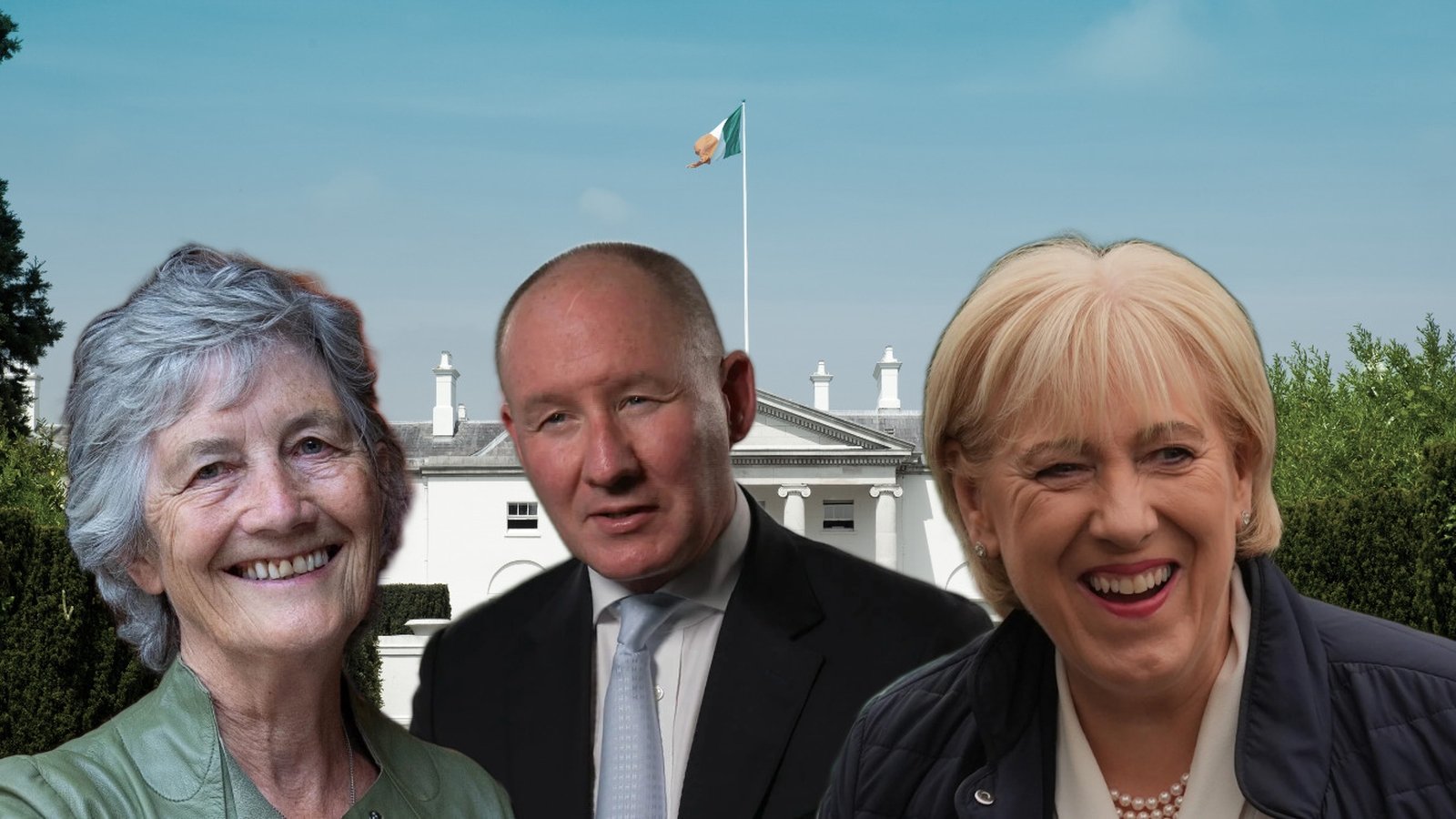
Read more on post.
In the first full day of campaigning in the Presidential Election, the three candidates will be canvassing in Dublin, Laois, and Limerick.
Independent candidate Catherine Connolly, who is backed by the left-leaning parties in the Oireachtas, will attend a meeting of the Dáil Public Accounts Committee this morning in her capacity as a TD for Galway West.
Afterwards, and as a presidential candidate, she will be campaigning in the capital, including at a rally in Harold’s Cross this evening.
The Fine Gael candidate Heather Humphreys will start her campaign today in Laois, with a lunchtime canvass in Portlaoise.
Later, she will be canvassing in Limerick City before attending a Fine Gael rally in Patrickswell.
Earlier, Ms Humphreys said housing supply is “the biggest challenge” facing the country and “very tough”, but stopped short of agreeing with outgoing President Michael D Higgins that it has become a “disaster”.
The Fianna Fáil candidate Jim Gavin will be in the capital this morning, with a canvass in Blackrock and Dún Laoghaire.
He also will be joined by party colleagues at other campaign events in south Dublin.
Barrister Maria Steen failed to secure enough support to join the race, securing 18 Oireachtas nominations when 20 was required.
After her campaign ended yesterday morning, Ms Steen told the media that “rarely has the political consensus seemed more oppressive or detached from the public’s wishes.”
However, Taoiseach Micheál Martin rejected suggestions that the failure of Ms Steen to secure a nomination was “anti-democratic”.
Voting takes place on 24 October. It is the smallest field in a Presidential Election since 1990.
Breaking News
China does targets differently to the West – and it may be just what the world needs
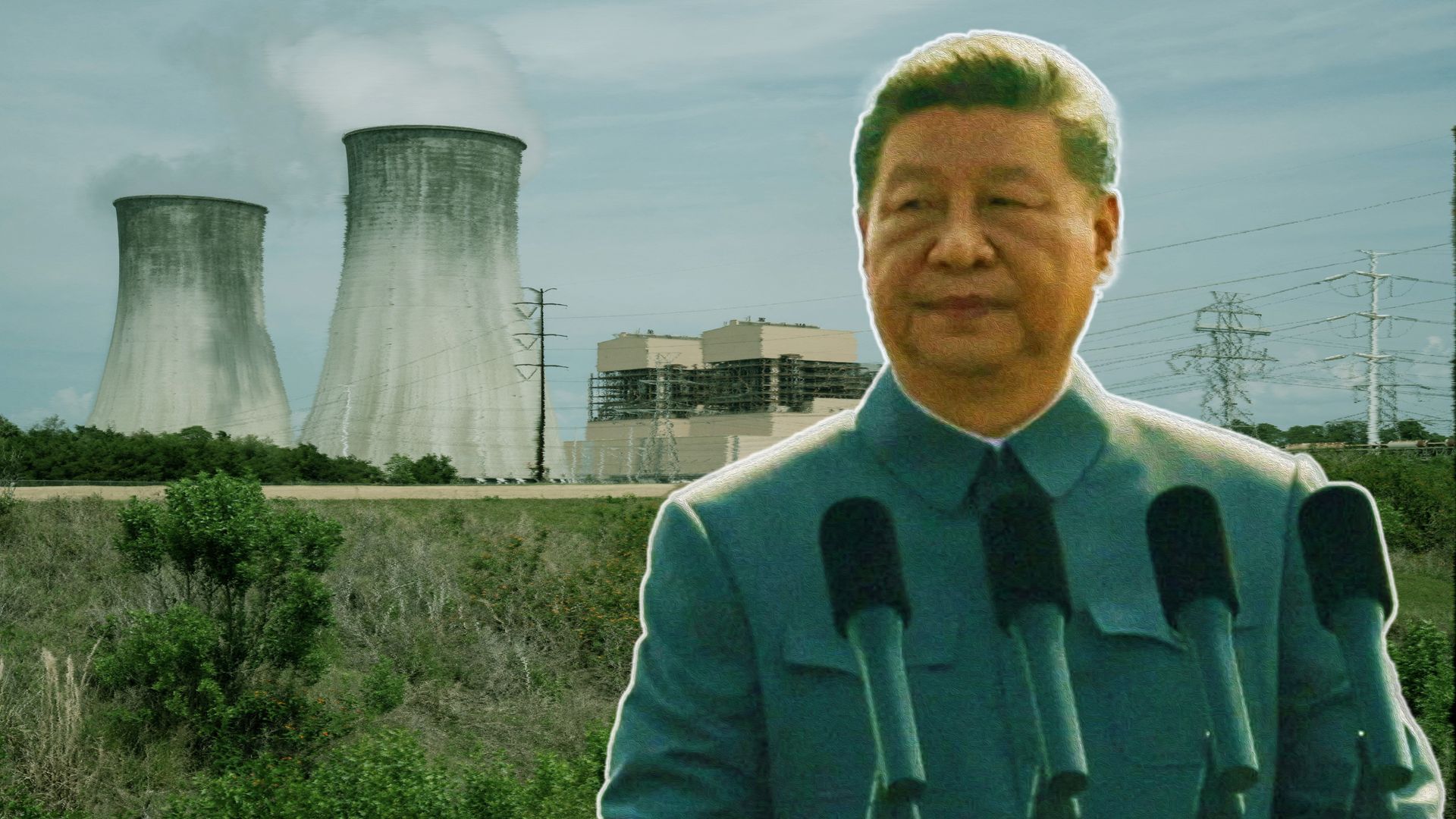
Read more on post .
There is something peculiar about the Chinese government that makes its targets very different to those in countries like Britain.
That quirk gives analysts some hope after it’s “timid” announcement on the green transition – and as Donald Trump yesterday condemned climate change as a “hoax”.
The good news is that China has, for the first time, made a commitment to cut its greenhouse gas emissions. It’s a landmark moment.
In a video statement to the UN in New York, President Xi Jinping vowed China would cut emissions by 7-10% by 2035, while “striving to do better”.
But it is still “critically short” of the roughly 30% believed to be necessary from the world’s biggest greenhouse gas polluter and clean tech superpower, analysts said.
Juan Manuel Santos, former president of Colombia and chair of The Elders, a group of global leaders founded by Nelson Mandela, said: “China’s latest climate target is too timid given the country’s extraordinary record on clean energy – both at home and through its green partnerships with emerging economies.”
Read more: Super typhoon hits China
China also chose not to say when it thinks its emissions will peak – allowing plenty of time for them to keep rising before they then fall.
But here’s why all is not lost – far from it.
In the West, targets are often aspirational. They are knowingly optimistic, sometimes wildly so, because the purpose isn’t necessarily to hit them.
Instead, they are designed to provide some certainty to investors, energy companies, local authorities and so on about where the country is headed, stimulating them all to kick into gear.
‘Taking targets seriously’
The Chinese work differently. In fact, they have a record over under promising and over delivering on climate targets.
Why?
“In China’s top-down political system, setting and evaluating targets is a key means through which the central government manages the country,” says Zhe Yao from Greenpeace Asia.
“As a result, there is a strong political culture of taking targets seriously. This mentality means policymakers usually take a realistic approach to setting targets rather than treating them as aspirations.”
Just look at their wind and solar rollout: meeting a target of 1,200GW by 2030 six years early.
Today they pledged to more than double today’s capacity of around 1,400GW to 3,600GW by 2035 – rates many countries can only dream of. There are other targets China has missed – such as to “strictly control” coal power – but still that record gives analysts hope.
Another ray of light is the fact that it was delivered by Xi himself – this is perceived as the commitment being more serious than if it was delivered by anyone else.
And “striving to better” sounds weasley, but suggests they aim to overachieve, and again should be taken more seriously from President Xi than perhaps we would from other leaders.
US and EU fall short
China is far from alone in disappointing with its pledge, made as a part of its latest five-year climate plan (known as nationally determined contribution or NDC), something all countries are doing this year as per the Paris Agreement.
The US government under Trump has ditched climate action altogether. The EU, which thinks of itself as ambitious, failed to come up with its own plan on time, effectively coming to the UN this week with an “I Owe You” instead.
With other leaders faltering, there was less heat on Beijing to step up.
Even the 10% reduction in emissions will “still put the world on a pathway to catastrophic climate impacts” says Kate Logan, director of the China Climate Hub at the Asia Society Policy Institute.
So let’s hope this target will not just be hot air, but another one for cautious China to overachieve.
Breaking News
Trump rages against three ‘very sinister events’ at UN
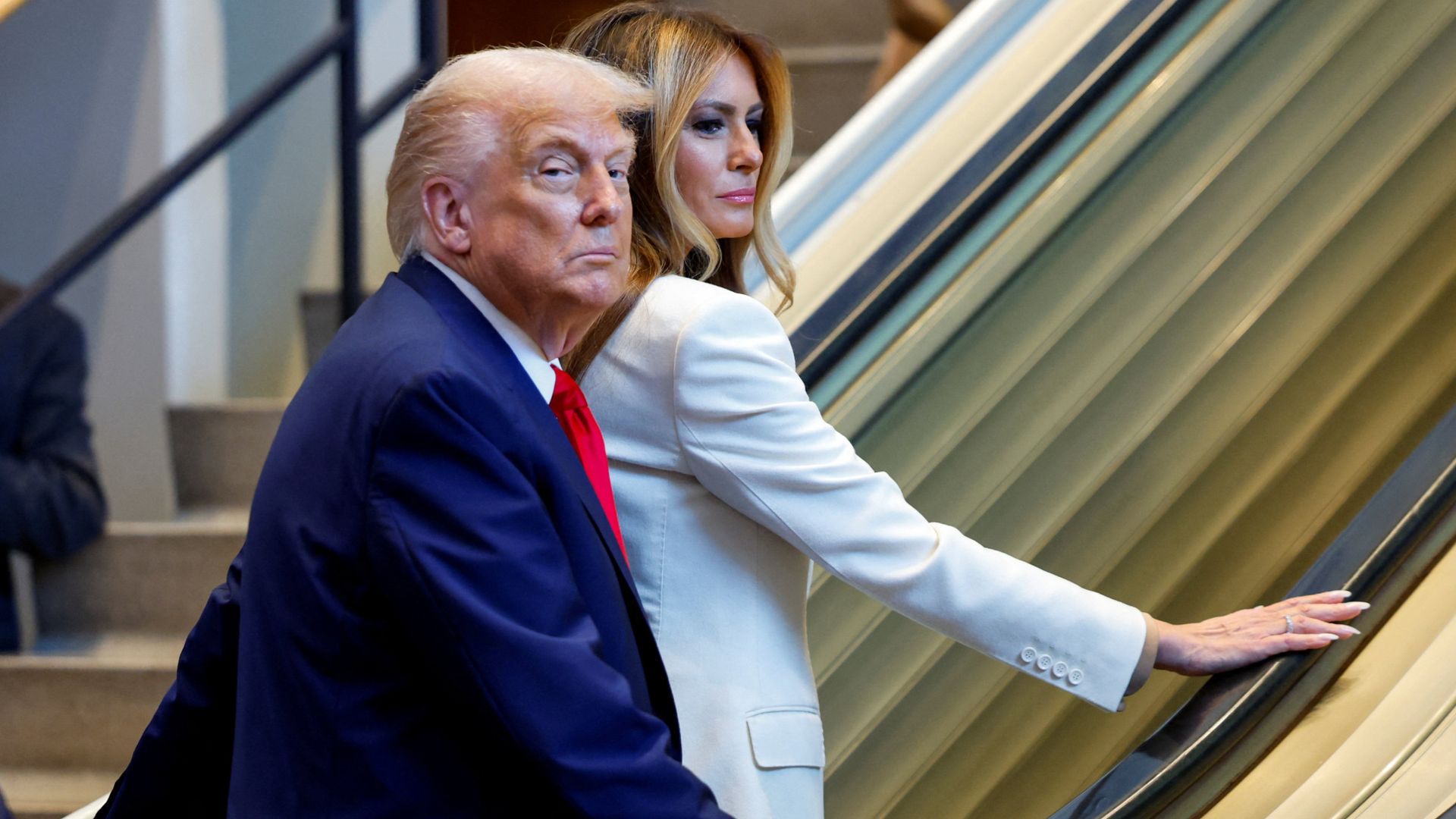
Read more on post .
Donald Trump has claimed his appearance at the United Nations was marred by three acts of “sabotage”.
The US president alleged an escalator had malfunctioned as he was travelling up it with the first lady, Melania, that a teleprompter had failed to work, and that world leaders couldn’t hear his speech.
In a post on his Truth Social platform, he said an escalator carrying him and his wife “came to a screeching halt” on the way to the main floor and nearly caused them to fall “onto the sharp edges of these steel steps, face first”.
“This was absolutely sabotage,” he claimed, as he called for the arrest of those responsible.
He also said his teleprompter did not work at the start of his speech and world leaders could not hear him because the sound system failed.
“Not one, not two, but three very sinister events!” Mr Trump wrote.
“This wasn’t a coincidence, this was triple sabotage at the UN. They ought to be ashamed of themselves.”
He also said he had asked the UN to preserve security camera footage and demanded an investigation, adding that the Secret Service was involved.
Mr Trump complained about both the escalator and the teleprompter during his speech to the UN on Tuesday.
UN officials have said the escalator’s built-in safety mechanism had been triggered and the teleprompter was operated by the White House rather than the organisation.
Analysis: Trump makes full-throttle assault on UN
On Monday, UN spokesperson Stephane Dujarric said a readout of the escalator’s central processing unit indicated it “had stopped after a built-in safety mechanism on the comb step was triggered at the top of the escalator”.
He said Mr Trump’s videographer had been travelling backward up the escalator to capture his arrival with the first lady and “may have inadvertently triggered the safety function”.
A UN official told Reuters the sound system had been designed to allow people at their seats to hear speeches being translated into six different languages through their earpieces.
-
Culture2 days ago
Taylor Swift’s new cinema outing generates more than €12million in just 24 hours
-
Politics2 days ago
European Parliament snubs Orbán with vote to shield Italian MEP from Hungarian arrest
-
Culture1 day ago
Milan Fashion Week 2025: Unmissable shows and Giorgio Armani in mind
-
Opinion2 days ago
Fintan O’Toole: How can you live with the knowledge that you have facilitated mass murder?
-
Opinion2 days ago
AI Is Pointless If It Doesn’t Boost Productivity
-
Culture3 days ago
Marvel stars Mark Ruffalo and Pedro Pascal stand up for Jimmy Kimmel as Disney boycott intensifies
-
Business16 hours ago
Households to be offered energy bill changes, but unlikely to lead to savings
-
Environment1 week ago
Chimps drinking a lager a day in ripe fruit, study finds




